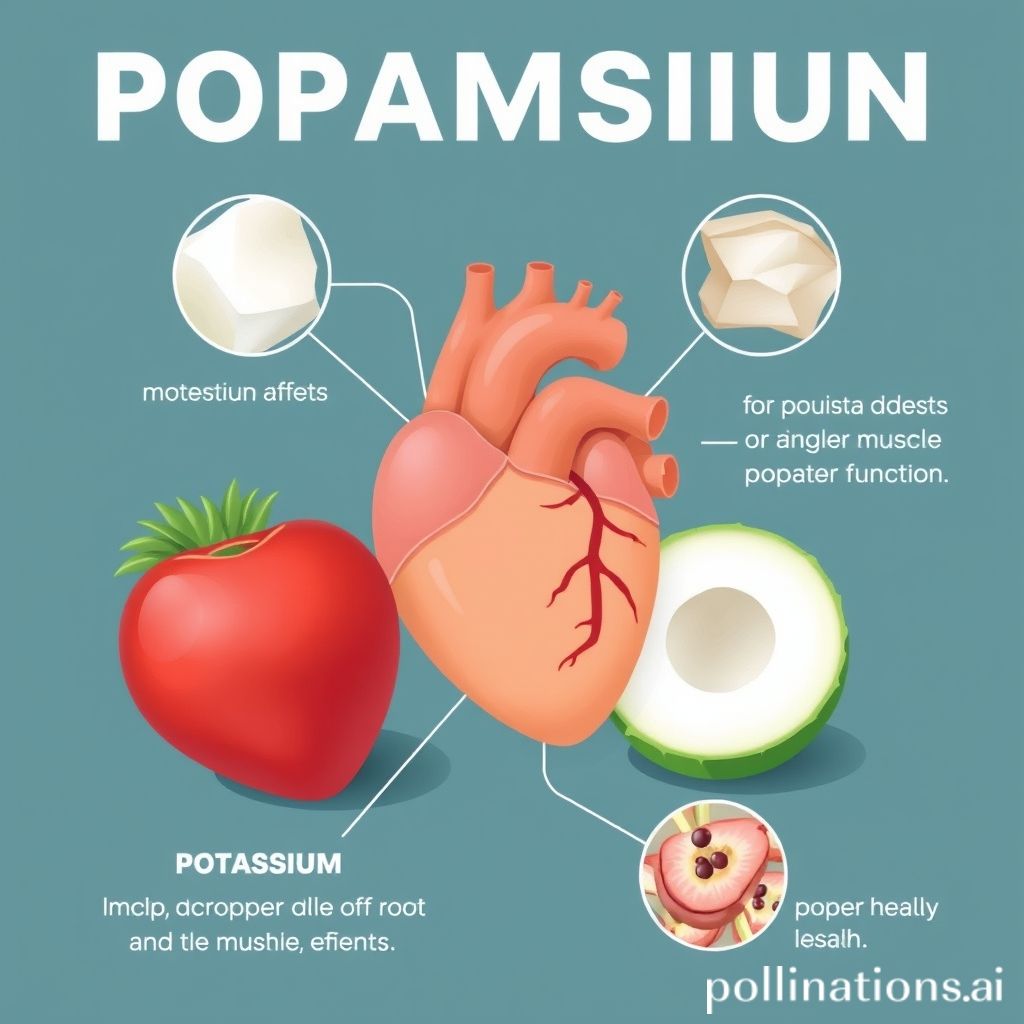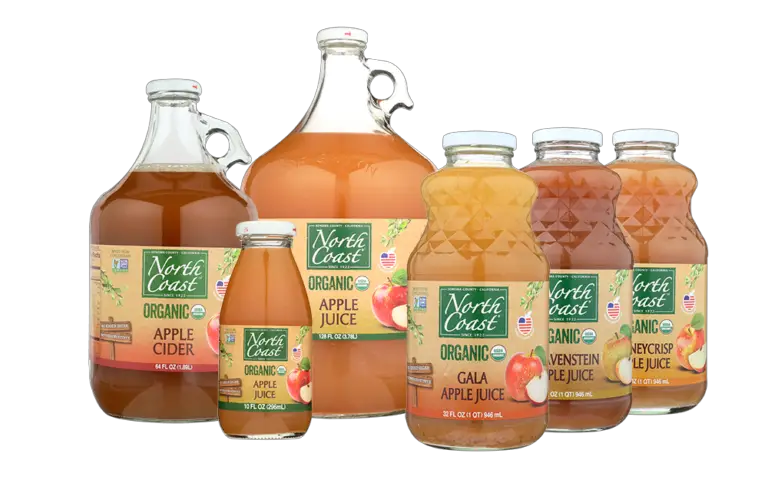Potassium Content in Apple Juice: Revealing the Nutritional Facts
[su_note note_color=”#fb8e00″ text_color=”#000000″ radius=”12″]
Apple juice is a popular beverage that many people enjoy. But what they may not know is that apple juice actually contains a significant amount of potassium.
Potassium plays a crucial role in the body’s functions, from maintaining proper muscle function to promoting heart health. In fact, consuming enough potassium in a balanced diet is essential for overall well-being. So, if you’re wondering whether apple juice can be a significant source of potassium in your diet, the answer is yes. In this article, we will explore the nutritional content of apple juice, discuss the health benefits of potassium, and provide alternative options for individuals with low potassium intake. So, let’s dive in and discover the potassium content in apple juice and its importance for your health.
[su_box title=”
[/su_box]

What is Potassium?
Potassium is a mineral that is essential for the proper functioning of the human body. It helps maintain fluid balance, nerve function, and muscle contractions. Potassium is especially important for a healthy heart rhythm, regulating blood pressure, and supporting kidney function.
The Role of Potassium in the Body’s Functions
Potassium has several important functions in the body. It helps regulate fluid balance, ensuring that cells and tissues are properly hydrated. Potassium also plays a crucial role in nerve function by assisting in the transmission of electrical impulses. This is important for the proper functioning of muscles, including the heart.
Potassium is involved in maintaining a healthy heart rhythm. It helps the heart muscle contract and relax at the right pace, ensuring a steady heartbeat. Additionally, potassium helps regulate blood pressure levels by counteracting the effects of sodium, reducing the risk of cardiovascular diseases.
Furthermore, potassium supports proper kidney function by aiding in the filtration of waste products and toxins from the blood, promoting overall kidney health.
Recommended Daily Intake of Potassium
The recommended daily intake of potassium varies depending on age, sex, and individual health conditions. For most adults, the adequate intake of potassium is around 2,500 to 3,000 milligrams per day. Nonetheless, individuals with specific medical conditions, such as kidney disease or high blood pressure, may have different requirements and should consult with a healthcare professional.
Foods rich in potassium include bananas, oranges, spinach, avocados, and apple juice. A cup of apple juice typically contains around 400-500 milligrams of potassium. Including a variety of potassium-rich foods in your diet can help ensure you meet your daily requirements.
It’s important to note that excessive intake of potassium through supplements or certain medications can be harmful, especially for individuals with impaired kidney function. It is essential to maintain a balanced and varied diet to meet your potassium needs without exceeding recommended levels.
[su_highlight background=”#f6b40f”]Expert Tips: Ensure a healthy heart rhythm and regulated blood pressure by including potassium-rich foods like bananas and spinach in your diet.[/su_highlight]
Nutritional Content of Apple Juice
List of Key Nutrients in Apple Juice
Apple juice is not only delicious but also packed with essential nutrients that contribute to a healthy diet. Here are some of the key nutrients present in apple juice:
- Vitamin C: Apple juice contains a good amount of vitamin C. Vitamin C is known for its antioxidant properties and its role in supporting the immune system.
- Potassium: Potassium is an important mineral that plays a vital role in various bodily functions. These include the regulation of blood pressure and the functioning of muscles and nerves.
- Antioxidants: Apple juice is rich in antioxidants, such as flavonoids and polyphenols. These antioxidants help protect the body against oxidative stress and reduce the risk of chronic diseases.
- Dietary Fiber: Whilst apple juice is lower in dietary fiber compared to whole apples, it still contains a small amount that can contribute to your daily fiber intake.
- Other Vitamins and Minerals: Apple juice also provides small amounts of vitamins A, E, and K, as well as minerals like calcium and magnesium.
Presence of Potassium in Apple Juice
One of the key nutrients found in apple juice is potassium, which is an essential mineral. Potassium helps maintain proper fluid balance, regulate blood pressure, and support muscle and nerve functions.
In a typical serving of apple juice, you can expect to find around 100-150 milligrams of potassium. The exact amount may vary depending on the brand and processing methods, but apple juice can still be a valuable source of potassium in your diet.
It’s worth noting that Whilst apple juice contains potassium, its potassium content is not as high as that of whole apples. If you want to increase your potassium intake, incorporating whole apples into your diet may be a more effective option.
| Nutrient | Amount per Serving |
|---|---|
| Vitamin C | Varies |
| Potassium | 100-150 milligrams |
| Antioxidants | Varies |
| Dietary Fiber | Varies |
| Other Vitamins and Minerals | Varies |
Potassium benefits for health
1. Positive effects of potassium on heart health
Potassium is vital for maintaining a healthy heart. Adequate levels of potassium can regulate blood pressure and reduce the risk of cardiovascular diseases. Here are some key points about the positive effects of potassium on heart health:
- Regulating blood pressure: Potassium balances sodium levels in the body, lowering blood pressure and preventing hypertension. High blood pressure is a major risk factor for heart disease.
- Supporting proper heart rhythm: Potassium helps maintain a regular heartbeat by facilitating electrical impulses that regulate heart contractions. This prevents abnormal heart rhythms, such as arrhythmias.
- Reducing the risk of stroke: Studies have shown that a potassium-rich diet can lower the risk of stroke, a condition often associated with cardiovascular problems. Potassium helps maintain healthy blood vessels and promotes optimal blood flow to the brain.
2. Role of potassium in maintaining proper muscle function
Potassium is essential for proper muscle function throughout the body. It regulates muscle contractions and ensures optimal muscle performance. Here are some important aspects to consider regarding the role of potassium in maintaining proper muscle function:
- Preventing muscle cramps: Adequate potassium levels help prevent muscle cramps and spasms by promoting muscle relaxation and preventing excessive contractions.
- Supporting muscle strength: Potassium contributes to muscle strength and endurance. It aids in muscle growth, repair, and overall performance during physical activities.
- Enhancing exercise recovery: Potassium helps replenish electrolytes lost through sweat during exercise. It assists in restoring muscle glycogen levels and reducing post-workout fatigue.

Does Apple Juice Have Potassium?
Many people wonder about the potassium content in apple juice. In this section, we will provide information on how much potassium apple juice contains and compare it to other beverages.
1. The Specific Amount of Potassium in Apple Juice
Apple juice is a popular and refreshing drink enjoyed by many. Not only does it taste delicious, but it also contains essential nutrients like potassium. The amount of potassium in apple juice can vary depending on the brand and how it is processed. On average, an 8-ounce serving of apple juice contains around 200 milligrams of potassium. This can contribute to your daily potassium intake and support various bodily functions.
2. Comparing the Potassium Content in Apple Juice with Other Beverages
In the realm of potassium content, apple juice compares favorably to other popular drinks. Let’s compare the potassium content in apple juice to some common beverages:
| Beverage | Potassium Content per 8-ounce serving |
|---|---|
| Apple Juice | Approximately 200 milligrams |
| Orange Juice | Approximately 450 milligrams |
| Tomato Juice | Approximately 535 milligrams |
| Coconut Water | Approximately 600 milligrams |
During apple juice may not have the highest potassium content compared to other beverages, it still provides a moderate amount that can contribute to your daily nutrient intake. Adding apple juice to your diet can be a tasty way to increase your potassium levels.
[su_note note_color=”#ea2e0c” text_color=”#ffffff” radius=”8″]Extra Tips: Boost your potassium intake with apple juice – a delicious and refreshing option compared to other beverages.[/su_note]
Does Apple Juice Contain Potassium?
Other Sources of Potassium
At the same time apple juice is popular, it does contain a moderate amount of potassium. Nevertheless, there are other foods that are rich in this essential mineral.
1. Identifying Various Potassium-Rich Foods
Potassium is found in fruits, vegetables, and other sources. Some examples include:
| Food Source | Potassium Content (per 100g) |
|---|---|
| Bananas | 358mg |
| Spinach | 558mg |
| Sweet Potatoes | 337mg |
| Avocado | 485mg |
These are just a few examples of potassium-rich foods. Including them in your diet can help meet your daily potassium intake.
2. Recommending Alternative Options for Low Potassium Intake
For individuals with low potassium intake or seeking alternatives, there are various ways to incorporate this mineral into their diet:
- Consuming potassium-rich fruits and vegetables: In addition to the examples mentioned, oranges, tomatoes, and broccoli are also great choices.
- Exploring other beverages: Besides apple juice, orange juice or tomato juice can provide a potassium boost.
- Considering potassium supplements: If it’s challenging to meet the recommended intake through food alone, consulting a healthcare professional about potassium supplements may be beneficial.
Remember, maintaining an adequate intake of potassium is essential for overall health. By including potassium-rich foods in your diet and exploring alternative options, you can ensure you meet your body’s potassium needs.
Conclusion
Apple juice is indeed a good source of potassium. Potassium plays a crucial role in maintaining proper bodily functions, including nerve and muscle function, as well as regulating blood pressure.
Consuming apple juice can contribute to your daily potassium intake and support overall health. Adequate potassium levels have been associated with several benefits, such as improved heart health, reduced risk of stroke, and enhanced bone health. So, incorporating apple juice into your diet can be a tasty and convenient way to boost your potassium levels and enjoy its numerous health benefits.
Faq about Apple Juice and Potassium
FAQ 1: How much potassium is typically found in a serving of apple juice?
A serving of apple juice typically contains around 190 milligrams of potassium.
FAQ 2: Can apple juice be a significant source of potassium in a diet?
Meanwhile apple juice does contain potassium, it is not considered a significant source. Other fruits and vegetables, such as bananas, oranges, and spinach, have higher potassium content.
FAQ 3: Are there any side effects of consuming too much potassium?
Yes, consuming excessive amounts of potassium can have side effects. These may include irregular heartbeat, muscle weakness, and nausea. It is important to consume potassium in moderation and as part of a balanced diet.
FAQ 4: Can individuals with certain medical conditions consume apple juice for potassium?
Individuals with medical conditions such as kidney disease or those on certain medications may need to monitor their potassium intake. It is recommended to consult with a healthcare professional before making any dietary changes.
FAQ 5: Are there any alternatives to apple juice for obtaining potassium in a diet?
Yes, there are several alternatives to apple juice for obtaining potassium in a diet. Some examples include bananas, oranges, avocados, tomatoes, and leafy greens like spinach and kale. These foods can provide a higher potassium content compared to apple juice.
By enmeshing these foods into your diet, you can ensure an adequate intake of potassium Meanwhile enjoying a variety of flavors and nutritional benefits.
Read Similar Post:
1. Boost Your Libido Naturally with Apple Juice: Unveiling the Sexual Benefits
2. Mix it Up: Perfect Alcohol Pairings for Apple Juice

